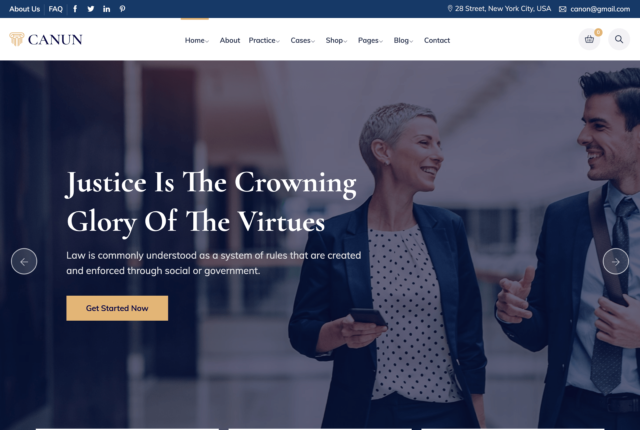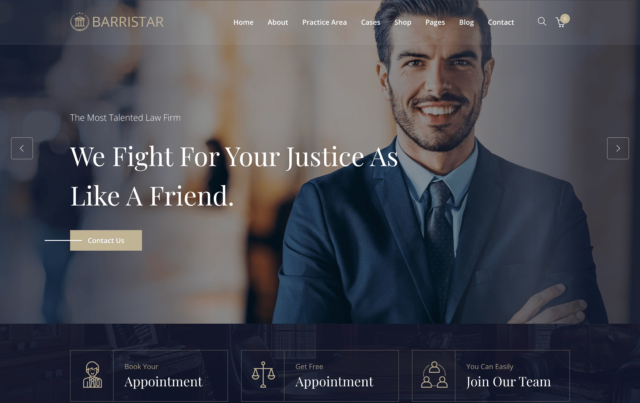Credibility is one of the most important assets for any attorney or law firm. It establishes trust with potential clients, strengthens your professional reputation, and opens doors to new opportunities. While digital marketing strategies like SEO and social media are extremely valuable as well as necessary, involvement in the legal community is an often-underutilized way to boost your credibility.
In this article, we’ll explore why legal community involvement is essential, the benefits it brings to your practice, and actionable ways to engage effectively while building a stronger reputation.
Why Legal Community Involvement Matters
Engaging with the legal community is more than just a networking tool; it’s a way to demonstrate your commitment to the profession, showcase your expertise, and build relationships that enhance your credibility.
- Peer Recognition: Active participation earns the respect of fellow attorneys, judges, and other legal professionals, cementing your reputation as a committed and ethical practitioner.
- Professional Development: Involvement in the legal community keeps you up-to-date on trends, changes in the law, and best practices, ensuring you remain a knowledgeable and capable attorney.
- Client Trust: When clients see you as a respected member of the legal community, they’re more likely to trust your expertise and professionalism when telling your firm’s story.
Benefits of Legal Community Involvement
Being active in the legal community offers several tangible and intangible benefits:
- Enhanced Visibility: Consistent participation in legal organizations and events increases your exposure within the profession and among potential clients.
- Networking Opportunities: Building connections with other attorneys and legal professionals can lead to referrals, collaborations, and mentorship opportunities.
- Thought Leadership: Publishing articles, speaking at events, or holding leadership roles positions you as an authority in your field.
- Positive Branding: Clients and colleagues view your community involvement as a sign of your dedication to the profession and its ethical standards.
Ways to Build Credibility Through Legal Community Involvement
1. Join Professional Organizations
Membership in legal associations such as your state’s American Bar Association (ABA) or local bar associations is a foundational way to connect with peers. Consider joining niche organizations specific to your practice area, such as the National Association of Criminal Defense Lawyers (NACDL) or the American Immigration Lawyers Association (AILA).
- Tip: Actively participate by attending events, serving on committees, or volunteering for leadership positions.
2. Speak at Legal Conferences or Seminars
Speaking engagements allow you to share your knowledge while positioning yourself as an authority in your field. Look for opportunities to present at industry conferences, legal webinars, or CLE (Continuing Legal Education) events.
- Example: A family law attorney might present on recent changes to divorce law at a state bar association meeting.
3. Write for Legal Publications
Publishing articles in respected legal journals, magazines, or blogs demonstrates your expertise and commitment to advancing the profession. These writings can also improve your visibility among peers and potential clients.
- Tip: Start with your local bar association’s newsletter or blog, then aim for larger publications like Law360 or the ABA Journal.
4. Mentor Young Attorneys
Helping newer attorneys navigate their careers not only strengthens the profession but also enhances your reputation as a leader and advocate for professional growth.
- Tip: Offer to mentor through bar associations or law school alumni networks.
5. Volunteer for Pro Bono Work
Taking on pro bono cases through organizations like Legal Aid or local charities is a powerful way to give back to the community. It reflects your dedication to justice and builds goodwill among peers and clients alike.
- Tip: Highlight your pro bono work on your website and in professional profiles to showcase your commitment to serving others.
6. Attend Legal and Community Events
Regular attendance at events like networking mixers, legal galas, or charity fundraisers keeps you visible and connected.
- Tip: Don’t just attend—be an active participant. Sponsor events or host panels to increase your visibility and demonstrate your commitment.
7. Take Leadership Roles
Seek leadership positions within legal organizations or committees. These roles showcase your dedication to the profession and provide opportunities to influence and shape its direction.
- Example: Serving as the chair of a bar association’s ethics committee positions you as a thought leader in professional responsibility.
How to Balance Involvement with Your Practice
While community involvement is valuable, it shouldn’t detract from your client work. Here are some tips to strike the right balance:
- Set Clear Goals: Decide on specific outcomes you want to achieve, such as earning a leadership role or increasing referrals.
- Prioritize Opportunities: Focus on activities that align with your practice area and personal interests.
- Schedule Wisely: Dedicate certain days or hours each month to community involvement to ensure it fits seamlessly into your routine.
- Leverage Your Team: If you’re part of a larger firm, encourage associates or staff to participate in community activities, sharing the responsibility and benefits.
Final Thoughts
Building credibility through legal community involvement is a long-term strategy that pays dividends in trust, reputation, and professional growth. By actively participating in organizations, events, and initiatives, you not only contribute to the advancement of the profession but also position yourself as a trusted and respected attorney.
Remember, the key is consistency and authenticity. Genuine engagement—whether through pro bono work, mentorship, or leadership roles—will solidify your reputation as a credible and reliable professional. Over time, this investment in your legal community will enhance your practice, attract more clients, and ensure your success in a competitive market.








